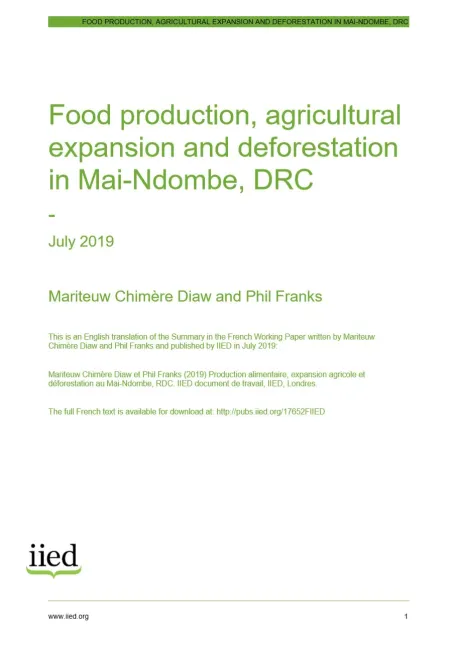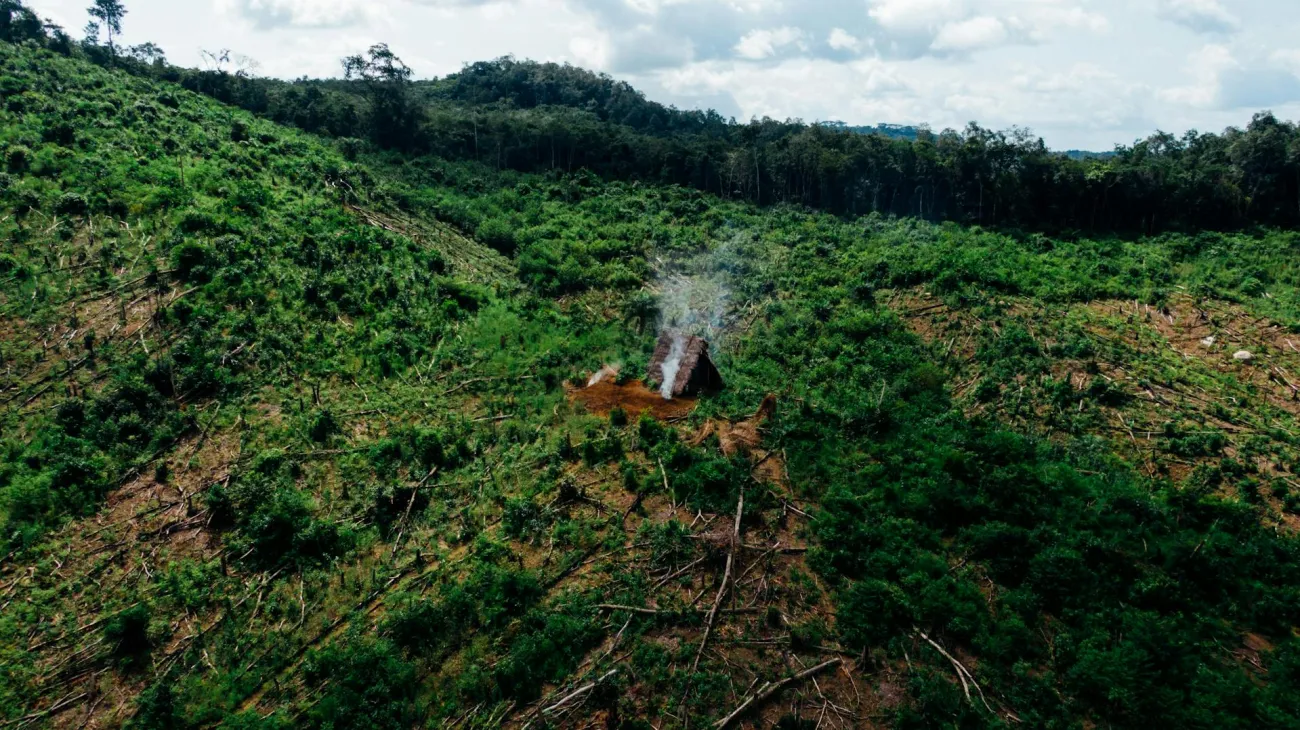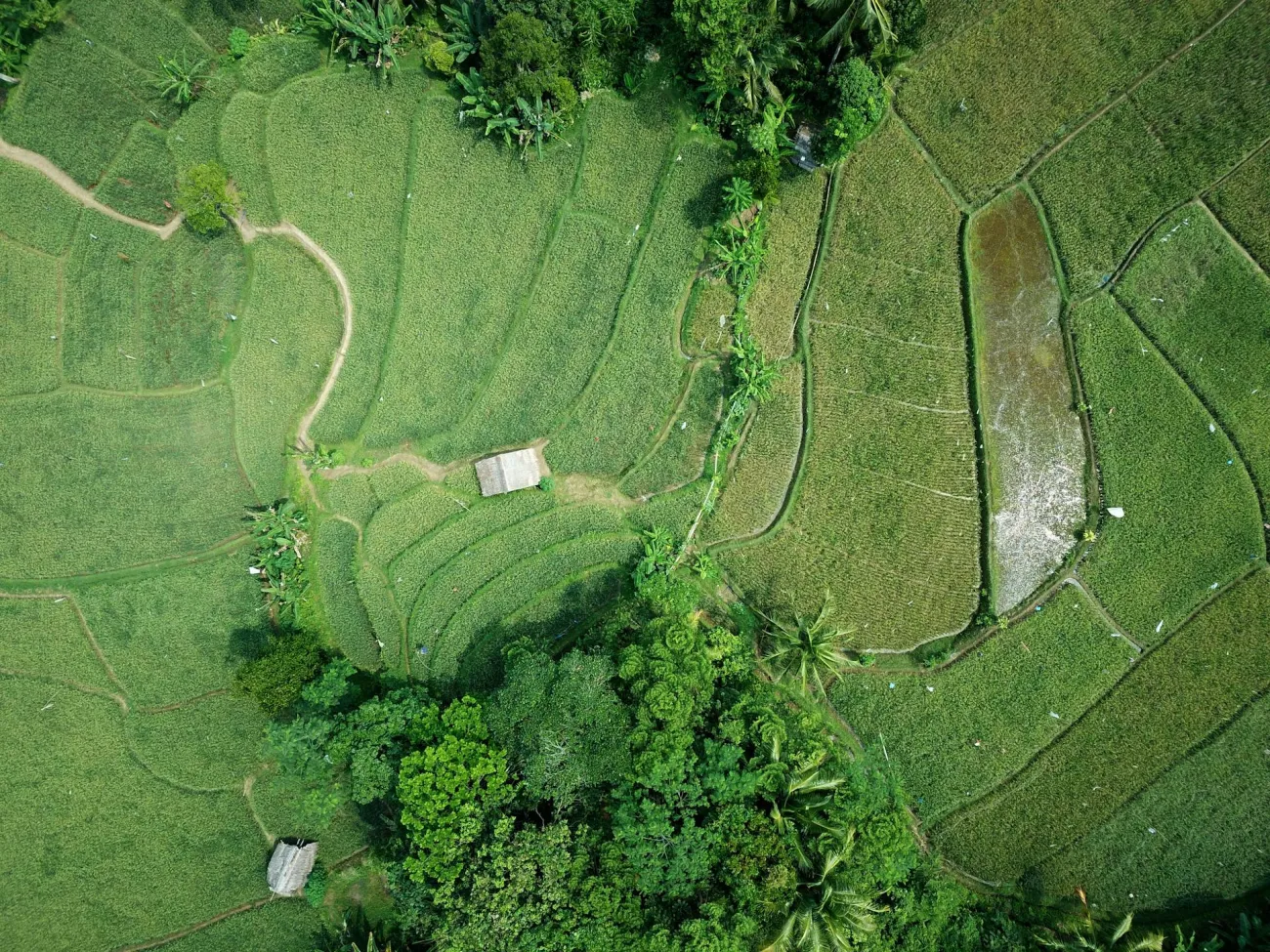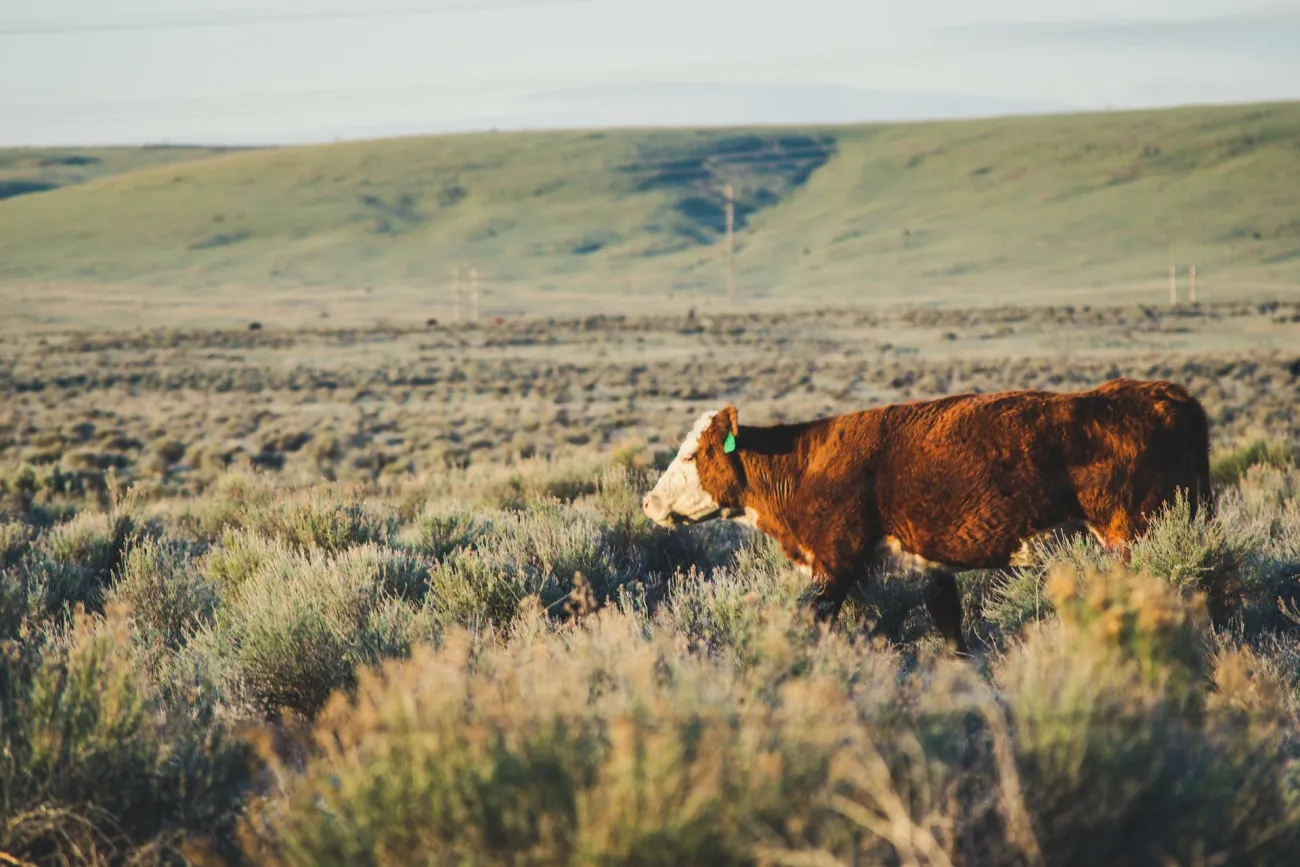This International Institute for Environment and Development (IIED) report examines deforestation caused by small-scale shifting cultivation, logging, cash crops, mineral extraction and charcoal production, using the province of Mai-Ndombe in the Democratic Republic of Congo (DRC) as a case study.

This International Institute for Environment and Development (IIED) report examines deforestation caused by small-scale shifting cultivation, logging, cash crops, mineral extraction and charcoal production, using the province of Mai-Ndombe in the Democratic Republic of Congo (DRC) as a case study.
In Mai-Ndombe, the leading causes of deforestation are small-scale shifting cultivation and large-scale livestock rearing (for example, cattle owned by the SOGENAC ranching company are estimated to occupy hundreds of thousands of hectares). The area has received funding for climate and environmental programmes. The report discusses the implications of various policies for the region, concluding that, while deforestation in likely to increase in the DRC in the coming decades, decision makers can control it to some extent by balancing the trade-offs between deforestation and development.
Read the report summary in English here and the full report (Food production, agricultural expansion and deforestation in Mai-Ndombe, DRC/Production alimentaire, expansion agricole et déforestation au Mai-Ndombe, RDC) in the original French here. See also the Foodsource resource How do food systems affect land-use and biodiversity?
For background information on deforestation in the DRC, see the IIED's short paper Transformative change to reduce deforestation in DRC, IIED Backgrounder.




Comments (0)